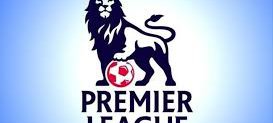

The English Premier League (EPL) stands as a shining example of how sports can transcend mere entertainment to become a global business juggernaut. Established in 1992, the league has evolved into one of the most popular and profitable sports leagues in the world, known for its stellar organization, iconic rivalries, and unparalleled marketing strategies. This article explores the EPL’s history, structure, and success, highlighting lessons for Nigerian sports marketers seeking to replicate its achievements.
Defining the English Premier League
The EPL is the highest tier of English football, featuring 20 clubs that compete annually in a round-robin format. Each team plays 38 matches per season, vying for the league title, spots in European competitions, and avoiding relegation to the second-tier Championship. Operating independently of the English Football League (EFL), the EPL generates billions in revenue through broadcasting, sponsorship, and merchandising, making it a global leader in sports business.
Origins and early challenges
Formed in 1992 to modernize English football and capitalize on growing TV revenue opportunities, the EPL replaced the Football League First Division, which had been the top tier since 1888. The league faced initial hurdles, including rampant hooliganism, outdated infrastructure, and financial disparities among clubs. Despite these challenges, visionary leadership, strategic investments, and improved governance turned the EPL into the world-class league we see today.
Iconic rivalries and fixture organization
The EPL’s season, running from August to May, features carefully scheduled matches to maximize global viewership. Key rivalries like Manchester United vs. Liverpool and the North London Derby (Arsenal vs. Tottenham Hotspur) inject passion and excitement, driving ticket sales, TV ratings, and fan engagement. Other notable derbies include:
Merseyside Derby
The clash between Liverpool FC and Everton FC is one of the EPL’s most historic fixtures. Known as the “friendly derby” due to familial ties between fans, it represents intense city pride and competition, with roots tracing back to Everton’s departure from Anfield in 1892.
Manchester Derby
The fierce rivalry between Manchester United and Manchester City has grown significantly in recent years due to Manchester City’s rise as a footballing powerhouse. Beyond local bragging rights, this derby often influences title races and European qualifications.
Global appeal and audience
The EPL boasts a massive international fanbase, with its matches broadcast in over 200 countries and reaching an estimated 4.7 billion people annually. Its lucrative TV rights deals, including partnerships with networks like Sky Sports and NBC Sports, highlight its ability to attract global audiences. In Nigeria, the league enjoys immense popularity, with vibrant viewing centres in cities like Lagos, Abuja, Port Harcourt, and Kano showcasing the league’s cultural impact.
Hooliganism: A crisis turned opportunity
Hooliganism was once a blight on English football, but through strict enforcement, improved security measures, and fan engagement initiatives, the EPL has transformed its stadiums into family-friendly venues. This has elevated the league’s reputation, attracting more fans and investors while promoting inclusivity.
Leveraging business opportunities in the EPL
The EPL serves as a case study in how sports can generate vast business opportunities:
- Marketing and branding
The league’s partnerships with global brands like Nike, Coca-Cola, and Barclays illustrate its marketing prowess. Clubs have developed unique brand identities that resonate worldwide, boosting merchandise sales and fan loyalty.
- Advertising
Pitch-side LED boards and match broadcasts provide high-value advertising space for global brands, offering unmatched visibility.
- Sponsorship
From shirt sponsors to stadium naming rights, EPL clubs attract billions in sponsorship deals. For instance, Manchester United’s partnerships with Adidas and Chevrolet exemplify long-term brand collaborations.
- Public relations
Strategic PR campaigns humanize the league by showcasing players’ off-pitch contributions, diversity initiatives, and community programs. Clubs like Arsenal effectively engage fans locally and internationally through digital content and events.
Case Study: Arsenal’s “Visit Rwanda” deal
The 2018 sponsorship between Arsenal and Visit Rwanda drew criticism for its perceived extravagance. While worth £30 million, critics questioned whether Rwanda, a developing nation reliant on foreign aid, could justify such spending. Concerns ranged from misallocation of resources to accusations of “sportswashing” Rwanda’s political issues. However, the Rwandan government defended the deal, citing increased tourism and investment as clear benefits.
Case Study: Newcastle United’s Saudi takeover
The 2021 purchase of Newcastle United by Saudi Arabia’s Public Investment Fund raised ethical concerns, particularly allegations of “sportswashing” to mask Saudi Arabia’s human rights record. Critics also questioned the Premier League’s ownership rules and the competitive imbalance created by such vast wealth. Despite this, the deal has rejuvenated Newcastle United, highlighting the complexities of modern football investments.
Replicating the EPL Model in Nigeria
Nigeria can draw valuable lessons from the EPL’s success, adapting its strategies to transform its local leagues:
- Governance and transparency: Professional management structures build trust and attract investment.
- Infrastructure development: Modernizing stadiums improves fan experience and revenue potential.
- Global marketing: Leveraging social media and digital platforms can help Nigerian football expand its reach.
- Grassroots development: Investing in youth academies ensures a steady talent pipeline for both clubs and the national team.
Nigeria’s gains from the EPL
The EPL has provided Nigerian players with a global platform, elevating their careers and raising the country’s footballing profile:
Jay-Jay Okocha: A fan favorite at Bolton Wanderers, known for his dazzling skills.
Nwankwo Kanu: A multiple trophy winner with Arsenal, establishing himself as a Premier League legend.
Yakubu Aiyegbeni: One of the highest-scoring African players in EPL history.
Wilfred Ndidi and Kelechi Iheanacho: Key players for Leicester City, continuing Nigeria’s tradition of producing EPL stars.
These players not only inspire young talents but also strengthen the Super Eagles with their international experience.
Lessons for emerging markets
Countries like Nigeria, South Africa, and Ghana can replicate the EPL’s success by focusing on:
Professional governance to ensure credibility.
Strategic marketing to attract global sponsors.
Youth development to nurture talent and build competitive leagues.
Combatting challenges such as corruption, hooliganism, and underinvestment.
Conclusion
The English Premier League exemplifies how sports can drive economic growth, build global brands, and foster national pride. By adopting its best practices, emerging markets like Nigeria can create sustainable, world-class leagues, unlocking their sports industries’ full potential.
About the author
Michael Umogun (fnimn) is the Business Development Director, The Insight Place Nigeria
Michael.umogun@theinsightplave.com | 08023117969


